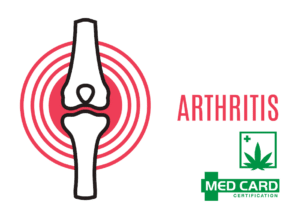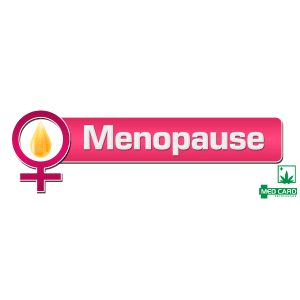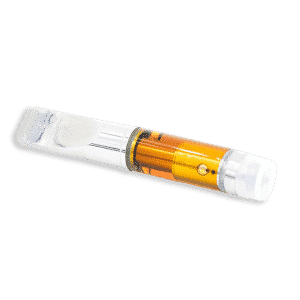Research has found out that medical marijuana is effective in reducing the symptoms of dystonia. As a matter of fact, medical cannabis works together with the endocannabinoid system (ECS) to improve the symptoms of dystonia. This assertion can be explained by the fact that CBD and THC both compounds in medical cannabis interacts with the CB1 and CB2 receptors of the endocannabinoid system, thereby helping in regulating the inhibitory and excitatory neurotransmitters necessary to diminish muscle tremors and spasticity. A 2013 study in people with spasticity symptoms caused by Multiple Sclerosis (MS) revealed a remarkable improvement after four weeks of medical marijuana treatment.
Dystonia is a movement disorder in which an individual’s muscles contract involuntarily and uncontrollably, thereby resulting in repetitive or twisting movements as well as abnormal postures. The muscle spasms associated with dystonia can range from mild to severe and when the condition affects only one part of the body, it is known as focal dystonia.
On the other hand, segmented Dystonia occurs when these involuntary muscle spasms affect one or more adjacent parts, whereas general dystonia affects all parts of the body. It should be noted that dystonia is a very rare condition which affects only about 1 percent of the population. Women are also known to be more prone to the condition than men.
The areas of the body that can be affected by dystonia include the neck, eyelids, jaw, tongue, hand and forearm as well as the voice box and vocal cords. The symptoms of dystonia typically progress through stages and some of the early symptoms include cramping of the foot, a ‘dragging’ leg, uncontrollable blinking, speech difficulties as well as involuntary pulling of the leg.
People suffering from dystonia often complain about pain and exhaustion which is caused by the constant muscle spasms. It is also worthy to note that the symptoms of dystonia in children generally appear first in either the foot or hands, and may progress quickly to the rest of the body.
The rate of progression of this condition also tends to slow down during adolescence and may affect just the upper body. According to scientists, most cases of dystonia do not have a specific cause, even though it seems to be related to a problem in the basal ganglia, which is the area of the brain that is responsible for initiating muscle contractions. That said, dystonia could also be a symptom of many other conditions such as stroke, traumatic brain injury, brain tumor, Wilson’s disease, Parkinson’s disease, infections such as tuberculosis or encephalitis as well as reactions to certain medications and heavy metal poisoning. Dystonia could also result in complications such as physical disabilities, as well as depression and anxiety. Like many other conditions, dystonia can be treated with medications, therapy and surgery.
A 2002 case study that was published in the Journal of Pain and Symptom Management equally reported improved dystonia symptoms in a 42 year old patient who was in chronic pain. The patient’s subjective pain score fell drastically from nine to zero after she inhaled the cannabis smoke. This same study also revealed that the patient needed no additional analgesic drugs for the next 48 hours. The researchers of this study also asserted that no other treatment had provided the patient with such significant relief in her condition. Another peer review paper that was published also supported the claim that medical marijuana could be effective in the treatment of dystonia. The paper revealed that the use of Cannabidiol showed a dose-response relationship.
Medical marijuana is also reported to be helpful in the treatment of neuropathic pain, which is common in sufferers of dystonia. A 2018 article that was published in the Cleveland Clinic Journal of Medicine revealed that medical cannabis could be effective in the treatment of neuropathy pain. Unlike other medications like opioids that are used in treating chronic pain, medical marijuana has mild side effects which typically last for just a few hours. Several studies that were carried out between 2005 and 2010 have also revealed that inhaled cannabis were extremely beneficial for patients with neuropathy pains caused by other diseases. It can therefore be argued that although medical marijuana cannot cure dystonia, it can eliminate the pain by causing muscles to unclench and relax to the point where severe disability can be prevented.
More so, the antiemetic, analgesic and appetite-stimulating properties of medical marijuana equally makes it to be effective in treating some other symptoms of dystonia like nausea and loss of appetite. In addition, the antispasmodic properties of medical marijuana also helps in counteracting the involuntary movements that go along with dystonia.
Sources:
Marijuana strains reported to help with Dystonia:
- Death Star
- Purple Trainwreck
- Shishkaberry
- Snoop Dogg OG
- Orange Kush
- White Berry
- Purple Wreck
- Afgoo
How To Get Medical Marijuana
Interested in trying medical marijuana to treat Dystonia or other medical conditions? To get started, simply fill out the MMJ patient registration form, press submit and a physician or clinic representative will contact you as available.













